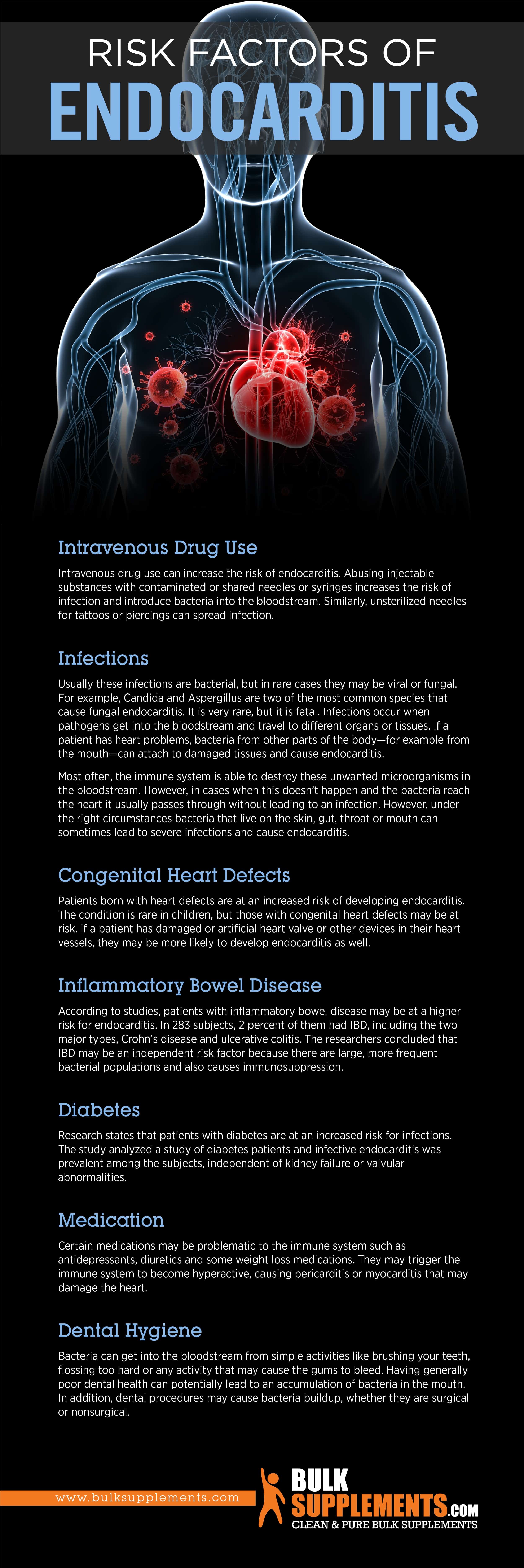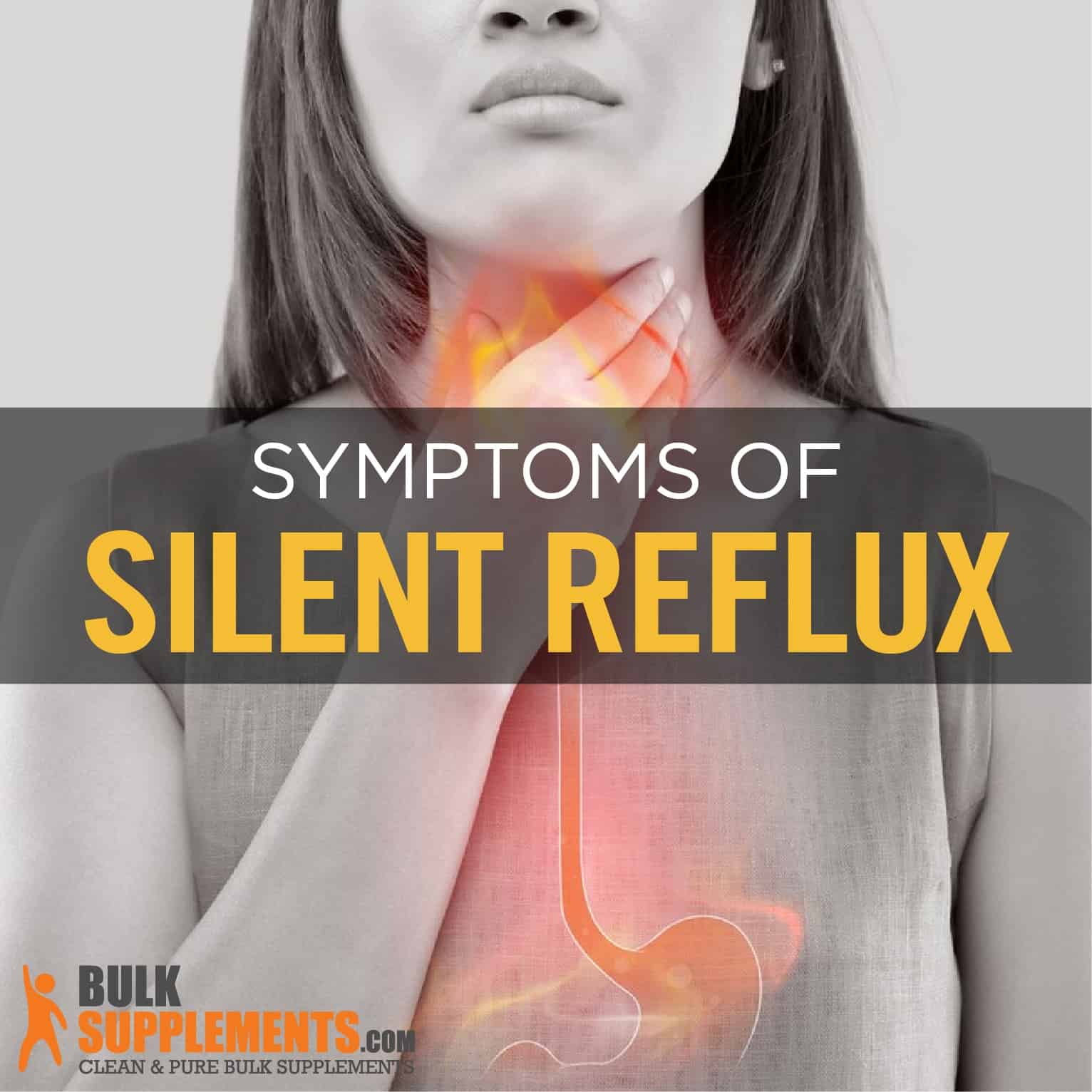Endocarditis: Causes, Symptoms & Treatment

Endocarditis
What is Endocarditis?
Endocarditis is an inflammation of the endocardium. The endocardium is a delicate, smooth layer that lines the entire inner surface of the heart. It also gives the heart a glistening appearance. Endocarditis is also called bacterial endocarditis (BE) or infective endocarditis (IE). The infection usually occurs when fungi or bacteria or other germs get into the bloodstream, spread and then settle in damaged areas of the heart, often on a valve. If the condition is not treated quickly, endocarditis can be potentially life threatening and damage the heart valves.
There are three main inflammations that affect heart health and endocarditis is one of them. The second is pericarditis, which occurs when the tissue that forms a sac around the heart becomes inflamed. The last is myocarditis, which occurs when the heart muscle, called the myocardium, becomes inflamed, reducing its ability to pump blood and forcing it to work harder to circulate blood and oxygen.
Endocarditis can occur at any age, including childhood. However, it is more prevalent among older people and those who already have heart problems. Over 25 percent of endocarditis cases in the United States affect people of over 60 years of age. Men are twice as likely to be affected by endocarditis as women. Genetics and lifestyle habits are also factors that increase the risk of endocarditis.
Risk Factors for Endocarditis
Several factors increase the risk of developing endocarditis. For example, autoimmune diseases like rheumatoid arthritis can cause heart damage and exposure to environmental triggers (lead, radiation, etc.) can cause the immune system to mistakenly attack the heart. Additionally, treatments such as radiation therapy or hemodialysis for end-stage kidney disease may also put patients at risk.
Intravenous Drug Use
Intravenous drug use can increase the risk of endocarditis. Abusing injectable substances with contaminated or shared needles or syringes increases the risk of infection and introduce bacteria into the bloodstream. Similarly, un-sterilized needles for tattoos or piercings can spread infection.
Infections
Usually these infections are bacterial, but in rare cases they may be viral or fungal. For example, Candida and Aspergillus are two of the most common species that cause fungal endocarditis. It is very rare, but it is fatal. Infections occur when pathogens get into the bloodstream and travel to different organs or tissues. If a patient has heart problems, bacteria from other parts of the body—for example from the mouth—can attach to damaged tissues and cause endocarditis.
Most often, the immune system is able to destroy these unwanted microorganisms in the bloodstream. However, in cases when this doesn’t happen and the bacteria reach the heart it usually passes through without leading to an infection. However, under the right circumstances bacteria that live on the skin, gut, throat or mouth can sometimes lead to severe infections and cause endocarditis.
Congenital Heart Defects
Patients born with heart defects are at an increased risk of developing endocarditis. The condition is rare in children, but those with congenital heart defects may be at risk. If a patient has damaged or artificial heart valves or other devices in their heart vessels, they may be more likely to develop endocarditis as well.
Inflammatory Bowel Disease
According to studies, patients with inflammatory bowel disease may be at a higher risk for endocarditis. In 283 subjects, 2 percent of them had IBD, including the two major types, Crohn’s disease and ulcerative colitis. The researchers concluded that IBD may be an independent risk factor because there are large, more frequent bacterial populations and also causes immunosuppression.
Diabetes
Research states that patients with diabetes are at an increased risk for infections. The study analyzed a study of diabetes patients and infective endocarditis was prevalent among the subjects, independent of kidney failure or valvular abnormalities.
Medication
Certain medications may be problematic to the immune system such as antidepressants, diuretics and some weight loss medications. They may trigger the immune system to become hyperactive, causing pericarditis or myocarditis that may damage the heart.
Dental Hygiene
Bacteria can get into the bloodstream from simple activities like brushing your teeth, flossing too hard or any activity that may cause the gums to bleed. Having generally poor dental health can potentially lead to an accumulation of bacteria in the mouth. In addition, dental procedures may cause bacteria buildup, whether they are surgical or nonsurgical.

Symptoms of Endocarditis
The symptoms of endocarditis may develop either suddenly or slowly. It depends on whether there is an underlying heart problem and on the type of infection that causes the problem. The signs and symptoms can also vary from one patient to another. Common symptoms of endocarditis may include loss of appetite, swelling in the feet and legs, nausea, vomiting, swelling in the abdomen, weight gain and bloody urine.
It may also cause symptoms similar to the flu. Fever, chills, night sweats, headaches, fatigue and muscle, bone and joint pain may signal an infection. Patients may also experience respiratory symptoms. The condition causes a cough and shortness of breath, especially while lying down. The patient may have trouble breathing during physical activity and breathing may also cause chest pain.
Experts also describe skin changes that may signal endocarditis, including small, sore red or purple spots on the fingers and toes. The patient may also have painless red spots on the skin, under the fingernails, inside the mouth and on the whites of the eyes.
Patients who experience any of these symptoms should contact a doctor for an evaluation, especially if they have existing heart issues.
Complications from Endocarditis
Without treatment or if the patient does not receive treatment fast enough, it can cause complications, depending on the patient’s medical history. Endocarditis can cause potentially life-threatening kidney damage and infection. It may also cause a blood clot, blocking the pulmonary arteries in the lungs. Clumps of bacteria can also form on the damaged heart valves. If the bacteria break off, they can travel to the brain, causing meningitis, stroke or brain abscesses. The bacteria may also spread to the lungs and cause lung damage. Other potential complications include:
- Irregular heart beat
- Heart attack
- Pneumonia
- Heart block or heart valve damage
- Spleen damage
- Heart failure
- Sepsis
- Death
Treatment for Endocarditis
There are two types of endocarditis: infective and non-infective. There are also two different forms of infective endocarditis: acute, which develops suddenly and can be fatal within days, and subacute, which develops more gradually. Infective endocarditis is more common. In the non-infective form, blood clots form on the heart valves and endocardium, but they do not contain microorganisms. However, sometimes it can lead to infective endocarditis if microorganisms start to attach and grow inside of the blood clots.
Without treatment, the condition is fatal. The prognosis depends on the patient’s age, how long the infection has been in the body, how much damage it has done, if they have had a replacement heart valve and the type of organism causing the infection. However, most people survive with aggressive antibiotics.
Antibiotics
Antibiotic therapy takes anywhere from two to six weeks to complete, depending on the severity of the condition. If the endocarditis is caused by bacteria, it would be treated with intravenous antibiotics. At first, the patient will stay in the hospital for the antibiotics. Sometimes the patient may be able to finish the treatment at home with a nurse to assist. In other cases, the patient may be able to switch to oral antibiotics.
However, if the patient has had a heart valve replacement, antibiotics may not cure the infection because the bacteria that survive the procedure are usually resistant. It is also more difficult to treat the infection on an artificial material than tissue.
SEE ALSO

Silent Reflux: Causes, Symptoms & Treatment
Surgery
If the infection is persistent, the patient may need surgery to replace or repair a damaged valve, remove vegetation or drain abscesses. Patients may also need surgery if a valve leaks or if they have a birth defect that connects one chamber to another. If a catheter or other medical device causes the infection, the surgeon will remove it as well. Patients may also need dental procedures to remove infection from gum or mouth disease.
Treating Non-Infective Endocarditis
In the non-infective form, the surgeon will treat the underlying condition that causes endocarditis. The doctor may prescribe anticoagulants, such as warfarin or heparin, to prevent blood clots. Non-infective endocarditis typically has a poor prognosis because the underlying disorder is usually more serious than the actual heart problem.
Supplements for Heart Health
In addition to traditional pharmaceutical treatment, there are several natural supplements that can help promote heart health. They are not a cure for any heart condition, but they have several benefits for overall health.
Acetyl L-Carnitine (ALCAR)
Studies on acetyl L-carnitine supplementation shows its potential to help cut down on the inflammation associated with heart disease, as well as high blood pressure. Researchers have also discovered a link between acetyl L-carnitine and severe heart disorders, such as heart failure and coronary artery disease. In the study, patients with heart disorders showed signs of improvement after taking acetyl L-carnitine along with traditional pharmaceutical treatment. As a dietary supplement, the standard recommended dosage for acetyl L-carnitine (ALCAR) is 600 mg up to three times a day, with a doctor’s approval.
Alpha Lipoic Acid (ALA)
Research from several studies suggests that alpha lipoic acid may help reduce the risk factors for heart disease. In one study, subjects took an alpha-lipoic acid supplement and it helped improve endothelial dysfunction, a condition that interferes with blood vessel dilation and heightens the risk of heart attack. The recommended dosage for alpha lipoic acid powder is 600 mg once or twice a day with meals. Consult a doctor before taking this supplement.
Beetroot Powder
A beet is a vegetable with edible roots that have vitamins, minerals and antioxidants. Beetroot has several benefits including blood pressure and heart health. Research links it to improved blood pressure and submaximal endurance in older individuals. Additionally, studies conclude that beetroot has antioxidant, anti-inflammatory and vascular-protective effects. Beetroot is also available as a supplement. The recommended dosage for beetroot powder is 3,500 to 7,000 mg a day, or following a doctor’s instructions.
Bottom Line
Endocarditis develops from inflammation in the heart lining. There are two forms: infective and non-infective. It may be caused by foreign pathogens, such as bacteria, that enter the bloodstream and causes infection. In rare cases, it may be the result of a fungi or virus. Infective endocarditis is caused by bacteria in the bloodstream, while non-infective endocarditis causes blood clots on the heart valve, but they do not initially contain microorganisms.
Symptoms may be similar to the flu, causing a fever, night sweats and chills. They may also affect the respiratory system, causing a cough, chest pain and difficulty breathing. It may also cause spleen and kidney damage, stroke, heart attack, sepsis and death. Without treatment, endocarditis is fatal.
Most patients recover from infective endocarditis if they receive treatment with aggressive antibiotics or surgery to replace or repair damaged heart valves. Physicians use anticoagulants to treat non-infective endocarditis, in order to address the underlying condition that causes inflammation. However, the prognosis is much lower than the infective form.
There are also several supplements that may help promote heart health. Always consult a doctor before starting a supplement regimen. They are not a medical cure, but research states that supplements can benefit overall health in several ways.



